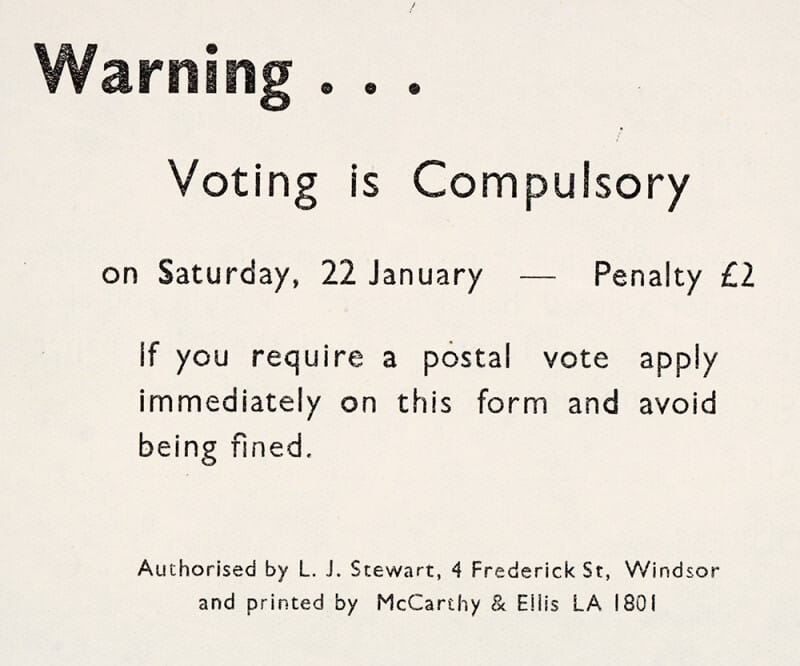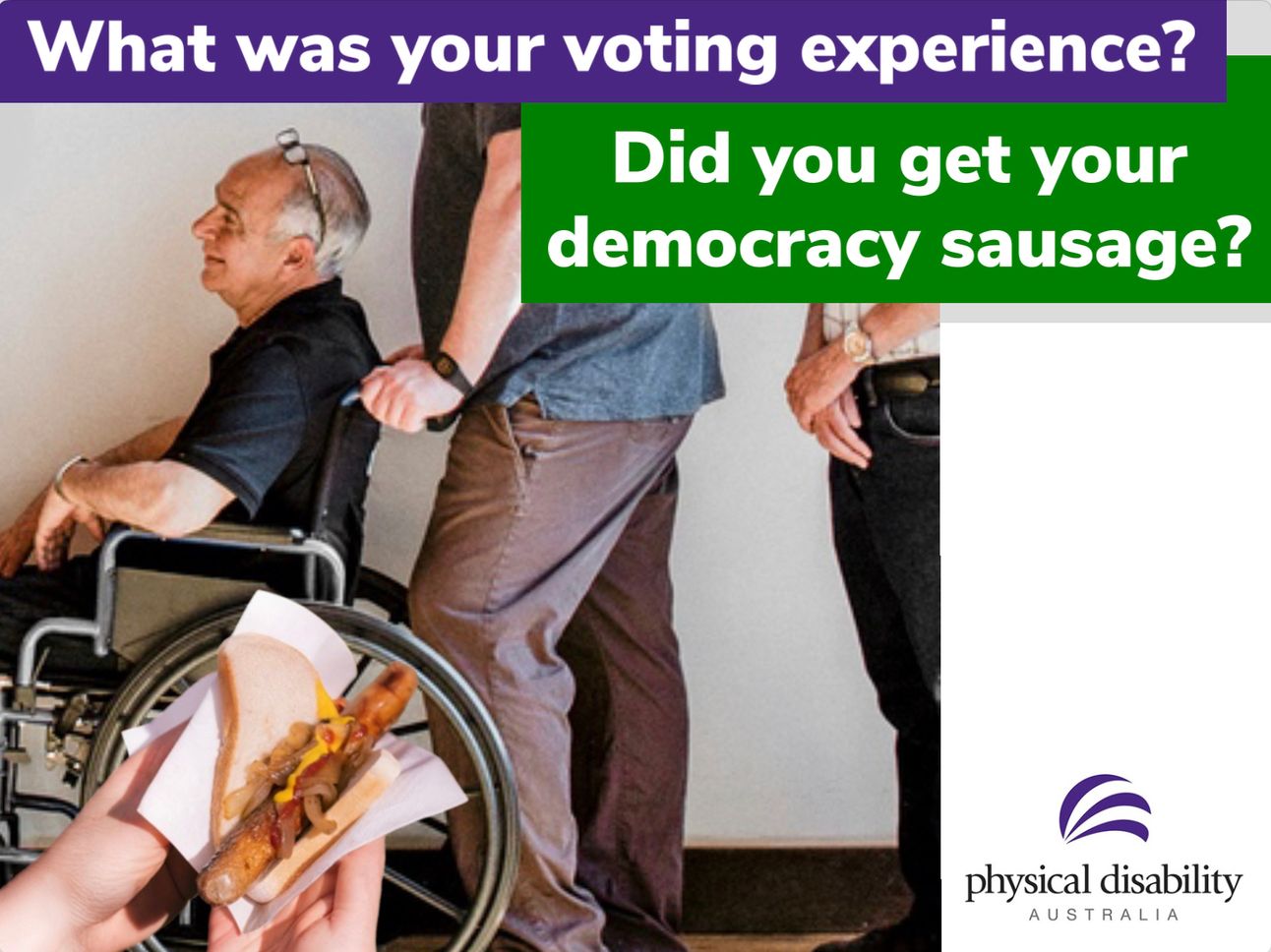The abilityNEWS Daily
The Big Story

Compulsory voting reminder from 1924 (courtesy Parliamentary Library)
The path to victory is different with compulsory voting - the party that holds the center always wins
Peter Dutton’s campaign was focused on making this election a simple, binary choice. His success in framing things this way simply meant that more people abandoned him.
The Liberal’s imported advisors and ideas from the United States and built their campaign around the leader. Both were big mistakes. Australia has compulsory preferential voting, whereas America has a first-past-the-post system and Dutton was unpopular. Then, to top it off, the party held policies back until it was too late for them to bite.
But what this means for the future is the real story for the coalition.
Although it’s clawed back a couple of seats as counting has continued, a defeat of this magnitude will leave it so far behind it’s almost certain it will sit on the opposition benches for at least the next six years, if not longer. In that time the country will be permanently re-shaped.
And because the party’s few remaining MPs come from its right-wing rump, the chances of it regaining the centre quickly appear slim.
As former moderate Senator Simon Birmingham insists, “the response must now be even more dramatic and touch upon all aspects of the party. Nothing can be sacrosanct if the party is to find a pathway to relevance with new generations of voters.”
"Respect, inclusion and freedom can stand together, with support for all families and enterprises. But not alongside judgmental attitudes that exclude or isolate some. Beyond the presentation of ideology, there must be a reshaping of the party to connect it with the modern Australian community.”
This call has dramatic resonance for people with disability. It insists that the meaning of life is about more than money - it is about companionship and community.
The coalition’s had prominent advocates for disability issues in the past (just think of Hollie Hughes and Bridget Archer, both of whom will leave parliament this election), but these members and senators have not held the ear of the leadership team.
If the opposition ever wants to re-gain government it will need to come up with a positive way to engage with the sector.
The Briefing

Image courtesy Physical Disability Australia
Share your story: how accessible was voting?
by Physical Disability Australia
Australians with disability are being asked to share their recent voting experiences in the federal election. This feedback will help identify barriers and improvements needed to help make participation in future elections even more accessible.
Prominent politicians with disability won seats at the election
by Physical Disability Australia
Ali France has won the seat of Dickson for Labor, bringing lived disability experience and a focus on inclusion to federal Parliament. Greens Senator Jordon Steele-John has also been re-elected, continuing his work representing Australians with disability.
First Peoples Disability Network urges Labor to put First Nations people with disability at the centre of bold reforms
by First Peoples Disability Network
The First Peoples Disability Network is urging the incoming government to prioritise reforms for First Nations people with disability. CEO Damian Griffis stressed the need for Indigenous voices to guide policy decisions affecting their communities.
Call for investment in individual advocacy for young people with disability
by Children and Young People with Disability Australia
Children and young people with disability are often excluded from critical decisions affecting their lives and futures. CYDA urges funding for advocacy services to help ensure their voices are respected and needs supported.
New form of Ocrevus considered for PBS
by Multiple Sclerosis Australia
The Pharmaceutical Benefits Advisory Committee will assess a new subcutaneous version of Ocrevus at its July 2025 meeting. Ocrevus is currently used intravenously to treat multiple sclerosis and the new form may offer patients greater convenience.
Benevolent Society will shift some supports to another provider
by Australian Disability & Aged Care
The Benevolent Society will transfer its disability therapy and behaviour support services to Australian Health & Therapy Group by June 2025. Services will continue under a new AHTG brand, Avina, retaining existing staff, leadership and locations.
Tied: a comic about love, independence, and the disability support pension
by Children and Young People with Disability Australia
Cartoonist Kaygan highlights the emotional and practical challenges disabled people face when navigating romantic relationships under restrictive welfare rules. The story shows how the Disability Support Pension can reduce autonomy for couples where one partner is on the payment.
The Wrap
Cook ‘concerned’ as huge NDIS overhaul passes Parliament
by The West Australian
The NDIS will be overhauled to contain spiralling costs after Labor and the Coalition defied last-minute lobbying from disability advocates to pass significant changes. Western Australia's Premier Roger Cook expressed concern over the Commonwealth's approach to the reforms.
NDIS provider pleads guilty over bathtub burns death
by Illawarra Mercury
Care provider LiveBetter was fined a record $1.8 million after pleading guilty to breaching its duty of care in the case of a client's death due to bathtub burns. The incident highlights significant failures in compliance with NDIS standards of care.
The Diary

